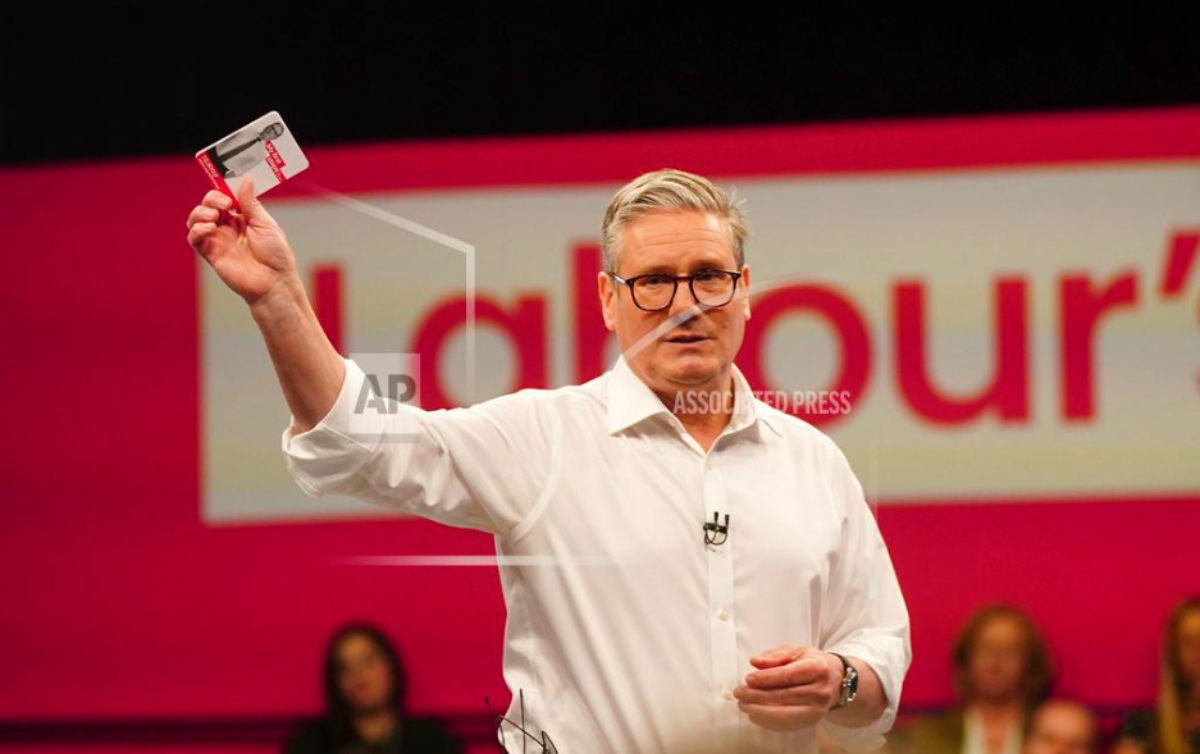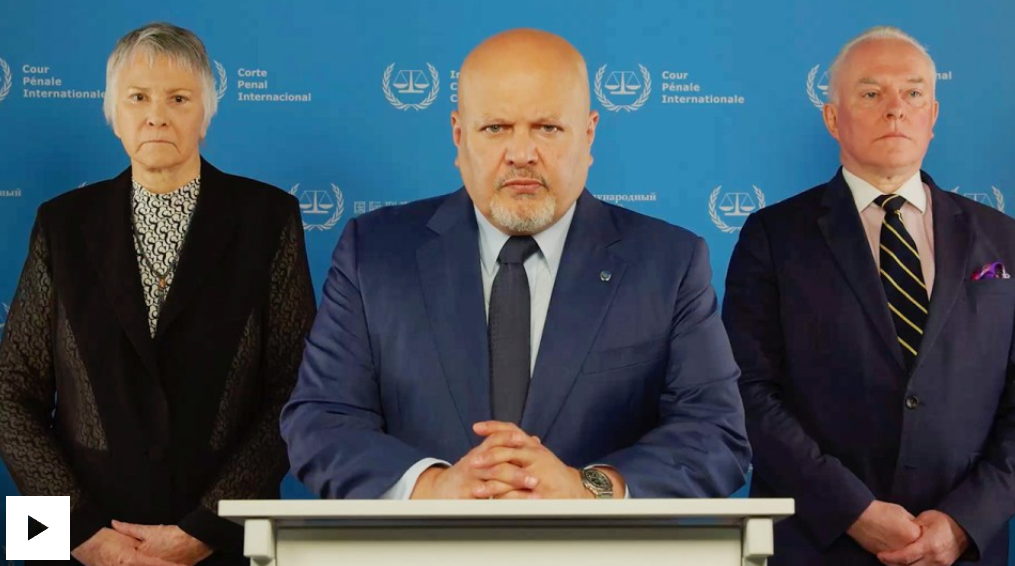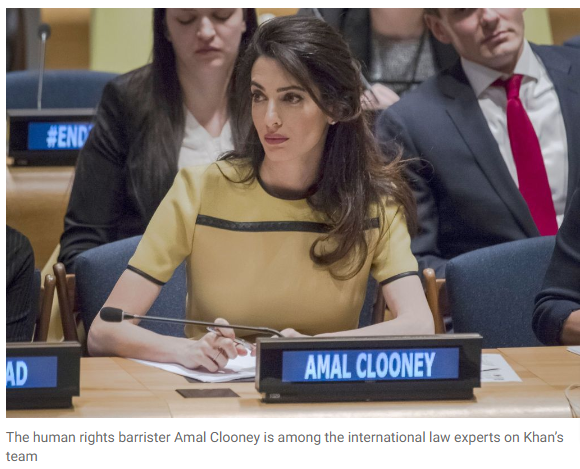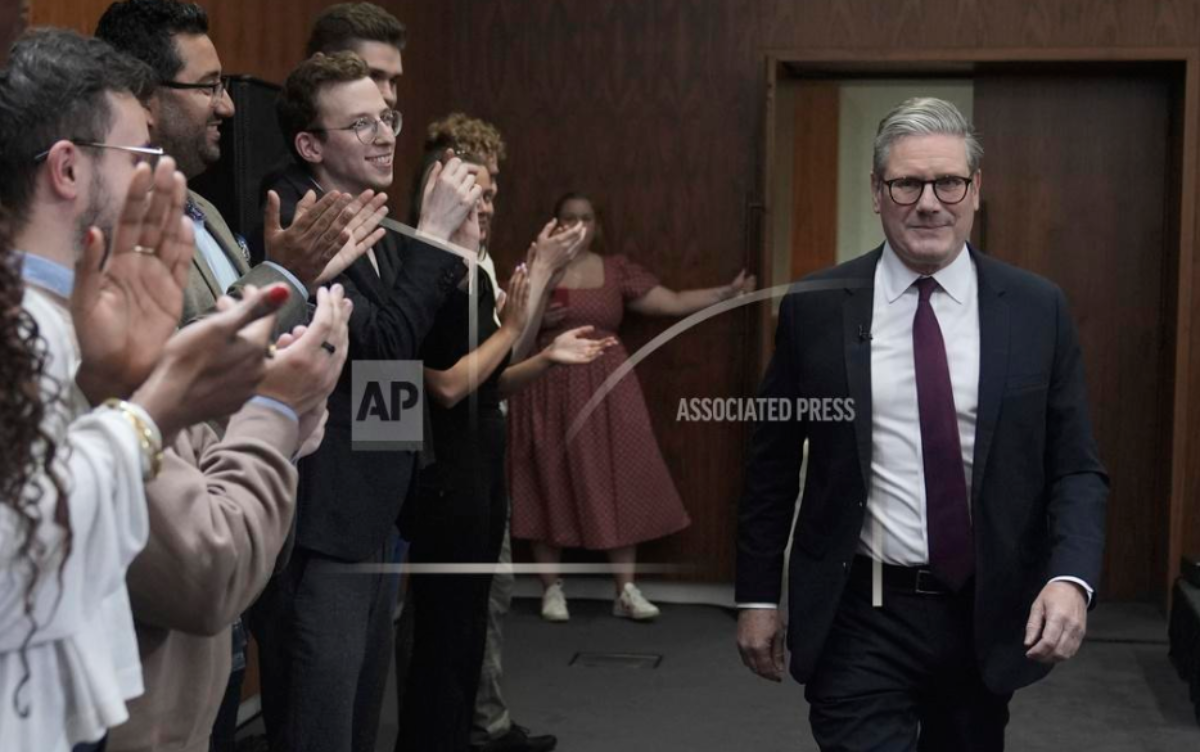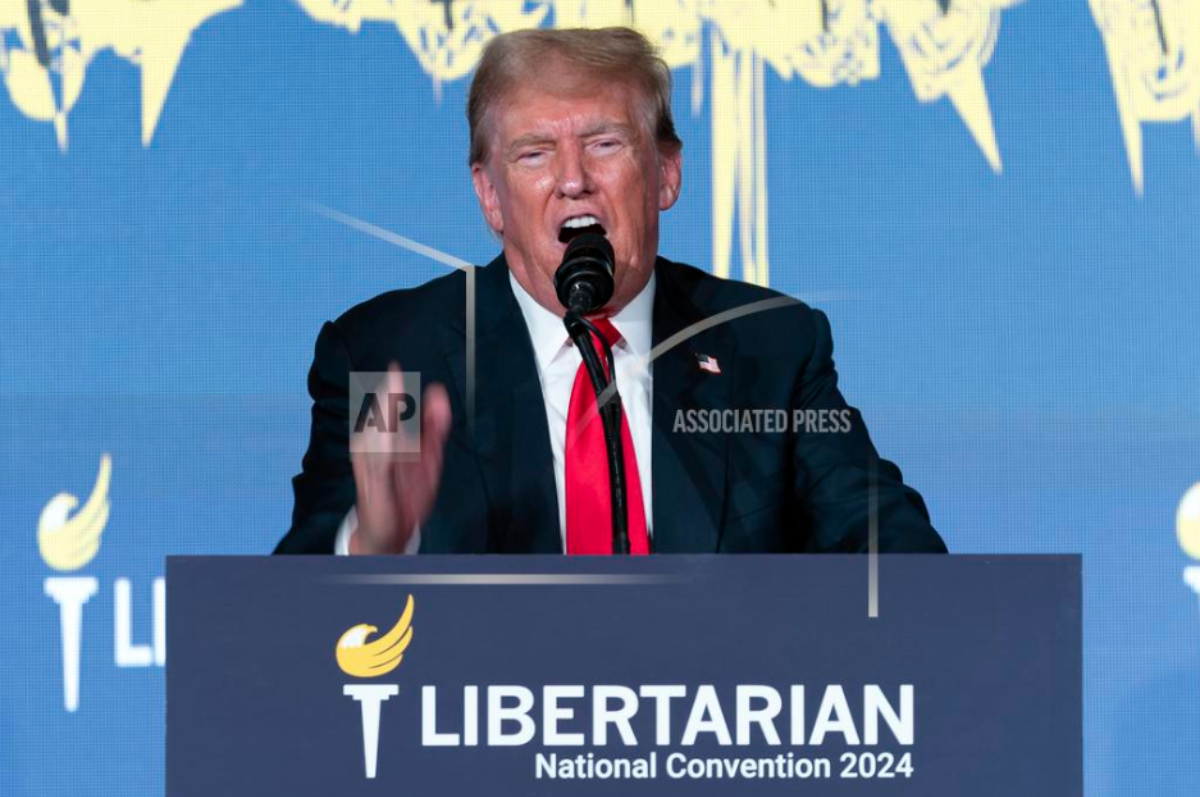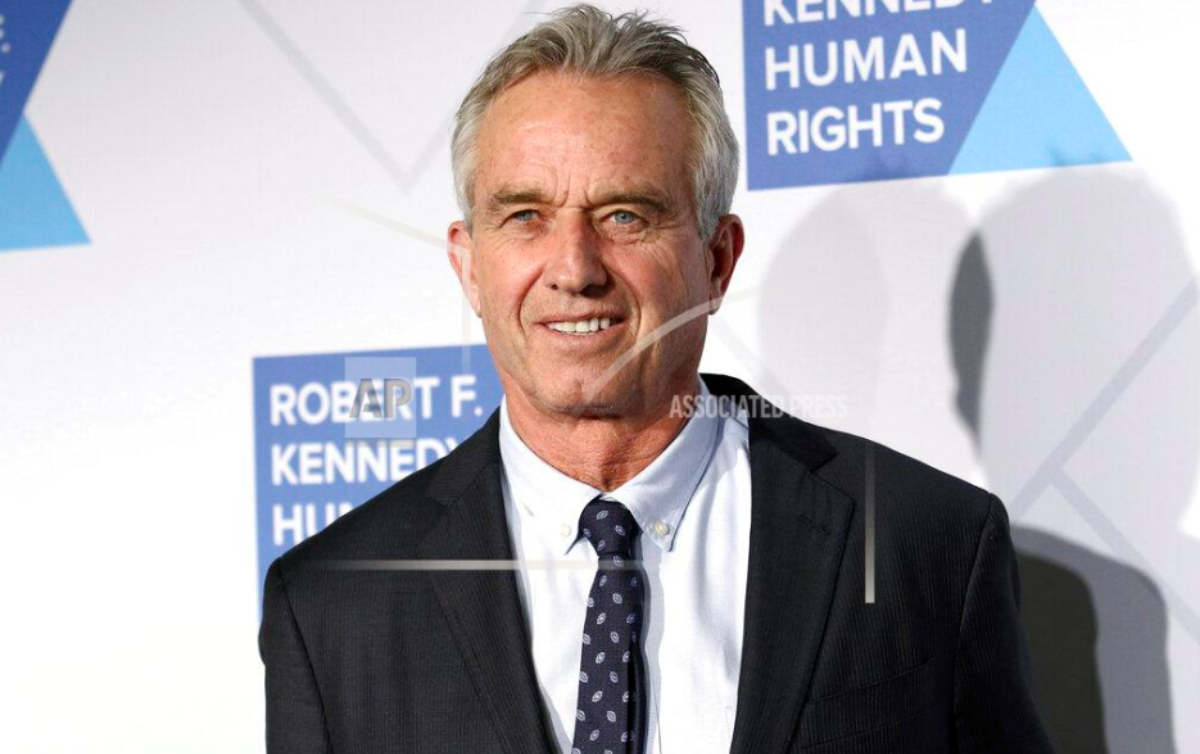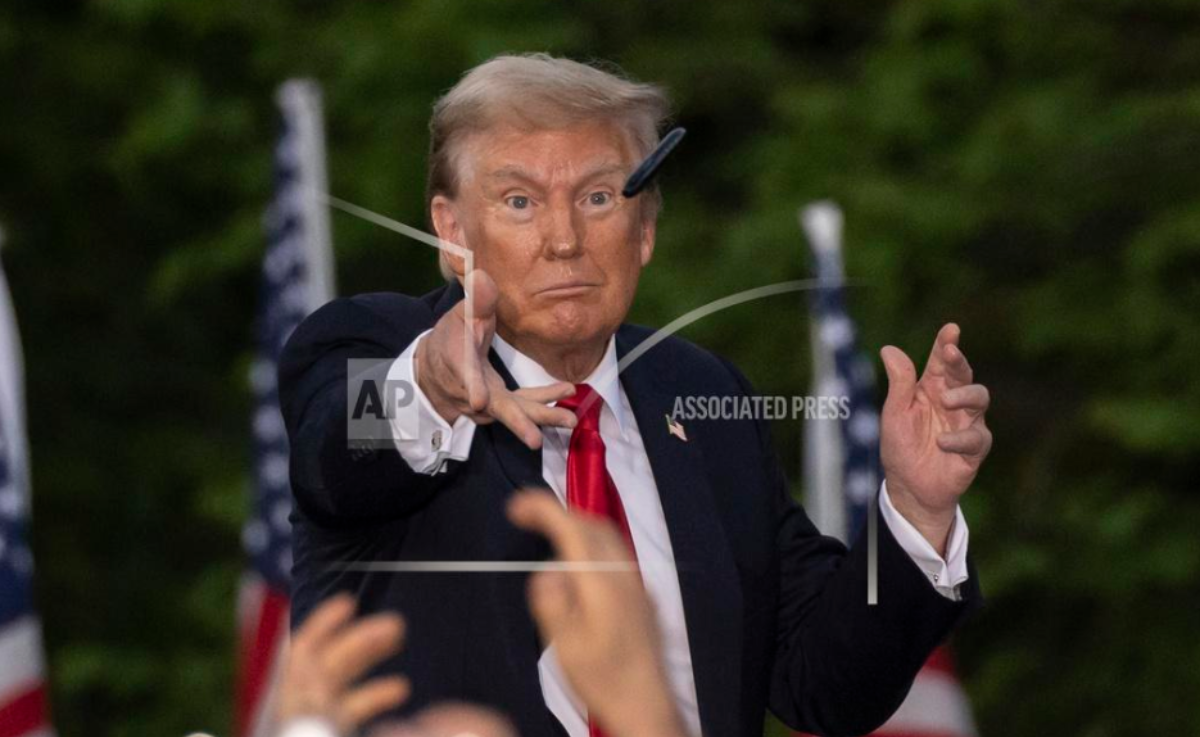-
Posts
10,801 -
Joined
-
Last visited
Content Type
Events
Forums
Downloads
Quizzes
Gallery
Blogs
Everything posted by Social Media
-
German security services uncovered a plot by a Hamas terrorist cell to attack the Israeli embassy in Berlin and a U.S. military base in Germany. This information was reported by the German newspaper Welt am Sonntag. The plot came to light with the arrest of a suspect of Lebanese origin in Berlin last December. The suspect was found to possess target locations on his smartphone and has been accused by prosecutors of scouting for places to hide weapons for the terrorist organization. According to German authorities, the suspect received direct instructions from Hamas officials based in Lebanon. This revelation aligns with a statement issued by the Israeli Prime Minister's office in January, which highlighted that Hamas operates a network of agents across Europe. This network, directed by terrorist leaders in Lebanon, aims to target Jewish and Israeli sites abroad. The German security services' swift action in apprehending the suspect has potentially averted a major terrorist attack. This has led to heightened vigilance and the implementation of increased security measures around potential targets. The German authorities are continuing their investigations to dismantle any remaining elements of the terrorist cell and prevent future threats. The revelation of this plot underscores the persistent threat posed by Hamas beyond the Middle East, as the group seeks to expand its operations and target sites associated with Israel and its allies. The German government's proactive measures have been crucial in countering this threat and ensuring the safety of its citizens and diplomatic missions. Further investigations are ongoing to ensure that any remaining threats are neutralized and that similar plots are prevented in the future. Credit: Times of Israel 2024-05-28 Get our Daily Newsletter - Click HERE to subscribe
-
Labour leader Sir Keir Starmer has launched his first major speech of the General Election campaign, presenting himself as the antidote to what he describes as 14 years of Conservative "chaos" that has led to a crisis in the UK's national culture. Speaking in the Tory stronghold of Lancing, West Sussex, Starmer emphasized the election as a critical decision point for the nation, framing it as a question of "whose side are you on." Starmer's speech was a direct appeal to working people, promising to restore trust in British politics and deliver economic stability and national security. He positioned himself as a leader whose values and character are deeply shaped by a lifelong commitment to serving the interests of working people. “Elections are about more than individual changes and policies, but about values, temperament, character, and a bigger question: whose side are you on? Who do you hold in your mind’s eye when you are making decisions?" Starmer asked. "Everything I have fought for has been shaped by my life, every change I have made to this party has been about a cause, the answer to that question, the only answer: The working people of this country delivering on their aspirations, earning their respect, serving their interests.” Despite Labour's significant lead in opinion polls, Starmer acknowledged that many voters remain uncertain about supporting his party. He directly addressed these doubts, stating, “I know there are countless people who haven’t decided how they’ll vote in this election. They’re fed up with the failure, chaos, and division of the Tories, but they still have questions about us: has Labour changed enough? Do I trust them with my money, our borders, our security? My answer is yes, you can, because I have changed this party, permanently.” In a pointed critique of the Conservative record, Starmer highlighted the struggles faced by working people in the UK. He argued that opportunity in Britain has long been skewed against them, and that the current government has exacerbated this imbalance. “For a long time now, working people have believed opportunity in Britain is stacked against them. But now we are at a dangerous new point, close to crossing a Rubicon of trust, not just in politics but in many of the institutions that are meant to serve and protect the British people.” Starmer painted a bleak picture of the current state of trust in the UK, citing declining living standards and a perceived erosion of public standards by the Conservative government. “When you put that alongside a Government that over 14 years has left living standards in this country worse than when they found them, that has torched any semblance of standards in public life, Westminster parties that broke the rules they put in place to save lives and rules they expected you to follow but ignored themselves, then you get a crisis in nothing less than who we are as a nation.” Starmer also took aim at Prime Minister Rishi Sunak’s recent proposal for a new form of compulsory national service, dismissing it as a “teenage Dad’s Army.” This quip underscored his broader argument that the Conservative government is out of touch with the realities and needs of ordinary British people. In his speech, Starmer sought to reassure voters that Labour is committed to responsible governance and protecting the nation's security. He portrayed Labour under his leadership as a party that has undergone significant transformation, one that can be trusted with the nation’s finances, borders, and security. As the General Election campaign heats up, Starmer’s message is clear: he positions himself and the Labour Party as the agents of change needed to end years of Conservative mismanagement and to restore trust and opportunity for working people across the UK. Credit: The Standard 2024-05-28 Get our Daily Newsletter - Click HERE to subscribe
-

Israel is at War - General discussion (pt3)
Social Media replied to Social Media's topic in The War in Israel
Welcome to the Twisted world of 2024 - when UN Employees get to take part in the largest massacre of Jews since the Holocaust, and in return receive a salary and complete impunity. -
Josh Frydenberg will present a Sky News documentary on anti-Semitism Bad things happen when good people stay silent. This stark lesson rings true as Australia grapples with an alarming surge in anti-Semitism since October 7 last year. The explosion of hatred targeting the Jewish community has been met with a shameful lack of response from our leaders, universities, and Human Rights Commission. This descent into darkness must stop now. Since the atrocities committed by Hamas on October 7, where over 1,200 innocent people were brutally murdered, anti-Semitic incidents in Australia have skyrocketed. The gravity of the situation is clear. Our leaders need to wake up and take strong, decisive action before it’s too late. This is the lesson of history. Those who fail to heed it are doomed to repeat it. This is why I joined Sky News for the documentary "Never Again: The Fight Against Anti-Semitism." I wanted to use my voice to ring the alarm bell and show my fellow Australians the damage being done to our country. Anti-Semitism is a light sleeper, but after October 7, it is violently awake. Nowhere was this more apparent than on the steps of the Sydney Opera House. The horrific violence perpetrated by Hamas halfway around the world sparked a mob in Sydney chanting “F..k the Jews.” This was followed by a riot in Caulfield, a largely Jewish suburb in Melbourne, triggered by false claims that Jews had burned down a local burger shop. Jewish families were left frightened in their homes, unable to visit their place of worship on the Sabbath. The doxxing of 600 Jewish creatives, including award-winning artist Deborah Conway, destroyed lives and livelihoods as performances were canceled, businesses vandalized, and death threats made. Their only sin was to support each other after facing abandonment from employers and fellow artists. The list of anti-Semitic incidents goes on: boycotting businesses simply because the owner is Jewish, daily harassment leading Jewish schools to advise students against wearing uniforms or symbols for fear of safety. How did we get here? The answer lies in the reckless indifference of our leaders. While I do not believe our Prime Minister, premiers, chancellors, vice-chancellors, police commissioners, or Human Rights Commissioners are anti-Semites, their inaction has been telling. They respect the enormous contributions Jewish Australians have made to our democracy and society, but their failure to confront anti-Semitism has been glaring. University leaders, for instance, have equivocated instead of acting. They wrote to the Attorney-General seeking legal advice on the phrase “Palestine will be free from the river to the sea,” a call for the abolition of the State of Israel. Australia’s foremost intelligence and security expert, Dennis Richardson, described it as a “very violent statement,” a sentiment echoed by the Prime Minister. Yet, university leaders hesitated. It was galling to hear the vice-chancellor of the University of Sydney, Mark Scott, defend such expressions as free speech, comparing them to demonstrations during the Vietnam War and nuclear disarmament. He misses the point. Free speech does not grant a free pass to hate speech, intimidation, and harassment directed at a particular group. The vice-chancellor’s reluctance to involve the police, citing American campus experiences, further demeans his role. The police were called to US campuses to reassert authority after violent anti-Semites ran amok. Appeasing the mob has only emboldened those seeking to disrupt and destroy. The documentary not only explores the recent events in Australia but also highlights the personal impact on many, young and old. Holocaust survivors share their fears, drawing frightening parallels between their past experiences and current events. Their testimonies are a stark reminder of the failure of our leaders to combat rising anti-Semitism. Australia’s longstanding relationship with Israel, traditionally marked by bipartisan support, is also under threat. Since October 7, Australia has failed to support Israel consistently, a fellow democracy in its hour of need. This support is crucial for security, intelligence, and enduring people-to-people links, transcending current political leadership. The events of October 7, much like 9/11, have ushered in a period of instability and conflict, lifting the lid on ancient hatreds. To counter the violence and protect our social cohesion, our leaders must reset their approach. More action and less talk are required. Defeating anti-Semitism is not just in the Jewish community’s interest; it is in Australia’s interest. The anti-Semitic incidents on our streets and campuses since October 7 are contrary to our values and our pride in being Australian. It’s time for our leaders to stand up, take risks, and show true leadership. The descent into darkness must stop—now. Credit: The Australian 2024-05-27 Get our Daily Newsletter - Click HERE to subscribe
-
In a first major interview since he announced he would request arrest warrants for Benjamin Netanyahu, Yoav Gallant and three Hamas leaders, ICC chief prosecutor Karim Khan dismisses as “nonsense” accusations that he was equating the actions of Israel and the terror group. “I am not saying that Israel with its democracy and its supreme court is akin to Hamas, of course not. I couldn’t be clearer, Israel has every right to protect its population and to get the hostages back. But nobody has a license to commit war crimes or crimes against humanity. The means define us,” As someone with personal experience of persecution, Khan understands the importance of impartiality and the rule of law. “What this comes down to is, ‘Do we want to live in a world where law is applied equally or one where we close our eyes and turn away because of our allegiances?’” Khan stated emphatically. He added, “Of course one is aware that Gaza is on the faultline of international relations but that cannot be an excuse not to try everywhere to put the rights of victims first. Whether those are the rights of Jewish victims or Palestinians, whether Muslim, Christian or of no belief, we must have the same moral outrage, love, care and concern—the point is they are all human beings.” On Monday, Khan’s announcement accused Netanyahu and Gallant, along with Hamas leaders Yahya Sinwar, Mohammed Diab Ibrahim al-Masri (also known as Mohammed Deif), and Ismail Haniyeh, of crimes against humanity. This marks the first time the ICC has targeted a sitting western-backed leader, igniting a wave of international outrage. Both UK Prime Minister Rishi Sunak and US President Joe Biden criticized the decision, with Sunak calling it “deeply unhelpful” and Biden labeling it “outrageous.” Khan responded to his critics by saying, “Our job is not to make friends. It’s to do our job whether we are applauded or condemned. We have to underline the equal worth of every child, every woman, every civilian in a world that is increasingly polarized and if we don’t do that, what’s the point of us?” The warrants, pending approval by the ICC’s judges, could impose significant constraints on Israel’s leadership. Unlike the International Court of Justice (ICJ), which lacks enforcement mechanisms, an ICC warrant would obligate all 124 signatory countries to arrest Netanyahu if he enters their territories. This includes key Israeli allies within the European Union. “If states don’t step up, it has massive implications,” Khan warned. “The ICC is their child—I am just the nanny or hired help. They have a choice to look after this child or be responsible for its abandonment.” Khan’s decision follows visits to Israel, where he witnessed the aftermath of the October 7 attack and met with victims' relatives. He carries a blue wristband with the slogan “Bring Them Home” and the silver dog-tag of Kfir Bibas, a nine-month-old baby who Hamas claims was killed by an IDF air strike but there has been no confirmation of this. “This would break anyone’s heart,” he said. “Kfir was just nine months old. But there’s no monopoly on suffering. There are Palestinian babies dying and we cannot have double standards.” The charges against Netanyahu and Gallant include causing extermination and/or murder, deliberately targeting civilians in conflict, and using starvation as a weapon of war—a first for the ICC. Hamas leaders are accused of extermination, murder, taking hostages, and sexual assault. Despite the severity of the charges, Khan was careful to clarify, “I am not saying that Israel with its democracy and its supreme court is akin to Hamas, of course not. I couldn’t be clearer, Israel has every right to protect its population and to get the hostages back. But nobody has a license to commit war crimes or crimes" Khan recounted a conversation with a senior official who questioned how Israel could act given the unknown whereabouts of hostages. Khan compared the situation to Britain’s response to IRA terrorism, saying, “There were attempts to kill Margaret Thatcher, Airey Neave was blown up, Lord Mountbatten was blown up, there was the Enniskillen attack, we had kneecappings … But the British didn’t decide to say, ‘Well, on the Falls Road [the heart of Catholic Belfast] there undoubtedly may be some IRA members and Republican sympathizers, so therefore let’s drop a 2,000lb bomb on the Falls Road.’ You can’t do that.” He stressed, “Law must have some purpose, that’s what separates states that respect the law from criminal groups and terrorists. And that’s all I have been trying to do, apply law based on facts, and that’s what we must do whatever condemnation we get.” Khan is perplexed by the surprise at his announcement, given his consistent warnings since October 7. “I’ve been saying continuously since October 7, ‘Comply now, don’t complain later.’ I said it in Rafah when I wasn’t allowed in by Israel. I said it in Cairo, said it in public statements and said it directly to the Israelis and Palestinians. So I just don’t know why anyone is surprised.” As he spoke from his office in The Hague, Khan, 54, appeared visibly exhausted. “Every day one gets emails, other types of threats and pressure, direct and otherwise,” he admitted. However, having previously taken on Russian President Vladimir Putin for war crimes in Ukraine, Khan is undeterred by the challenges. Born in Edinburgh to a British mother and Pakistani father, Khan grew up in Yorkshire where his father worked as a consultant dermatologist. He attended Silcoates School, a private institution in West Yorkshire, and later studied law at King’s College London. His family belongs to the Ahmadiyya Muslim community, which faces persecution in Pakistan. “I’ve had family members killed, shot in Lahore when mosques were attacked,” he shared. In 1989, while Khan was studying law, his family experienced violence firsthand. “My father, my mother, my younger brother and my cousin, who is a doctor, were all attacked,” he recalled. “They were having an interfaith event at Batley town hall and mullahs came from Pakistan and attacked. They knocked my cousin unconscious, hit my father and mother, and when the police took them into the station next door, a mullah stood on an ambulance and said we will burn down the police station unless you release our people.” This personal history of persecution and violence informs Khan’s commitment to justice. He built his career at the Crown Prosecution Service and the International Criminal Tribunal for the Former Yugoslavia, gaining a reputation as a defense lawyer. He represented high-profile clients, including Liberian warlord Charles Taylor and Kenyan President William Ruto, before becoming chief prosecutor of the ICC in 2021. Upon taking office, Khan pledged to reform the ICC, focusing on crimes against children and sexual violence while expanding the court’s geographic reach. “We currently have active investigations in the Philippines, in Afghanistan, in Myanmar and Bangladesh and in Latin America and in Georgia, Ukraine and Palestine,” he noted. “We may not be perfect but we are sincere and guided by evidence not extraneous factors such as political convenience.” Khan’s focus on Gaza stems from the events following October 7, including both Hamas’s attack and Israel’s subsequent military response. He cited various indicators of humanitarian violations, such as the targeting of bakeries and water sources, and the killing of aid workers. “It’s the whole pattern that’s indicative. We’ve analyzed it objectively and rationally,” he asserted. Israel disputes these characterizations, claiming that Hamas has seized much of the aid intended for Gaza. However, Khan pointed to the reports of international relief agencies and medical professionals documenting severe humanitarian crises. “Look what all major relief agencies say, what we are seeing of emaciated children. Even if we don’t trust Palestinian doctors, we have American and British doctors speaking of conducting amputations without anesthetics, of babies dying in incubators because the power is turned off, of people dying because there is no insulin,” he said. “This is not how war is supposed to be waged. If this is what compliance with international humanitarian law looks like, then the Geneva Conventions serve no purpose.” To compile the charges, Khan’s team gathered diverse evidence, including witness testimonies, satellite imagery, and authenticated videos. He also enlisted a panel of respected international law experts to independently assess the evidence. Among them were Amal Clooney, Baroness Kennedy KC, Lord Justice Sir Adrian Fulford, Elizabeth Wilmshurst KC, Danny Friedman KC, and Theodor Meron. “These are great lawyers I respect hugely who have stood up for principle throughout their life,” he said. He emphasized the credibility and expertise of the panel, noting, “The fact they have been unanimous that evidence is there is very important.” Khan acknowledges that civilian casualties are an unfortunate reality in armed conflict, particularly in urban areas, but he maintains that deliberately targeting civilians is unacceptable. “It’s another thing for civilians to be deliberately targeted. You can’t have as a common plan collective punishment. It’s absolutely legitimate for Israel to have the objective to defeat Hamas and to get hostages out, I support that. But the way you engage must be compliant with law.” The debate over casualty figures in Gaza, which recently saw a shift from the UN's endorsement of over 35,000 dead to about 25,000 “identified” dead Palestinians plus an additional unverified 10,000 from Gazan media sources , was dismissed by Khan as a “red herring.” “Even with the lower figure, every one is a tragedy,” he said. Of course this figure is lower still when you take out the Hamas fighters that have also been killed as Gazan Health Authorities makes no distinction between civilian and combatant deaths and casualties. While criticism from some countries such as the UK and the US has been fierce, Khan maintains. “It’s a precarious moment internationally and if we don’t hold on to the law, we have nothing to cling onto,” Khan said. “Those profound words ‘Never Again’ are too often becoming ritual incantations. Credit: Sunday Times 2024-05-27 Get our Daily Newsletter - Click HERE to subscribe
-
Every year, as March heralds the beginning of Everest season, thousands of adventurers set their sights on conquering the world’s highest peak. Mount Everest, a name synonymous with extreme adventure, danger, and the ultimate mountaineering achievement, now offers a paradoxical blend of luxury amidst the perilous climb. For those willing to pay a hefty price, this challenging expedition can be transformed into a lavish experience, complete with high-end amenities that rival those of five-star hotels. Climbing Everest has never been cheap. The cost of an expedition can vary dramatically, ranging from $30,000 to over $500,000. This steep price tag includes several major expenses: permits, guide services, gear, and, for those who seek it, luxury accommodations and services. Alan Arnette, a mountaineering coach who successfully summited Everest in 2011, notes that some high-end packages include extravagant perks. “There was an [Everest guide] company last year that offered a masseur from Kathmandu, who stayed the whole season,” Arnette told The Daily Beast. “If you’re paying $100,000, you can expect cappuccinos and sushi up there. Even a three-star chef.” The luxury experience begins at the base camps, where the level of opulence can vary significantly based on how much a climber is willing to spend. Some of the most opulent adventurers arrive at Everest’s base camps with hired porters carrying their gear, before being shown to glamping-style tents equipped with amenities that rival any five-star hotel. Arnette explains, “There is a market for the high-end experience at Basecamp. It’s like an airplane. The experience is totally different the more you spend.” Among the most luxurious offerings is the $98,000 per person Mount Everest North Side Rapid Ascent Expedition by Alpenglow Expeditions. This 36-day trip on the north side of Everest in Tibet is designed for advanced explorers and includes small group sizes, an on-call doctor, nine bottles of oxygen, and a western-trained cook staff. At Alpenglow’s 26,000-foot base camp, travelers have access to dining tents, Wi-Fi, cell service, and a fully stocked kitchen. Furtenbach Adventures, another company catering to high-end clients, aims to provide a true “glamping” experience at a cost of $75,000. “Every climber has a two-room stand-up tent with a bed, desk, electricity, and Wi-Fi, and large lounge tents with a bar, movie screening, library, and hot showers,” founder Lukas Furtenbach told The Times of London in 2020. “Last year we even had a sauna and infrared cabin powered with a clean fuel cell,” he added. Wherever possible, clients can even fly in and out from base camp by helicopter, further enhancing the convenience and luxury of the experience. Preparation for such a luxurious climb often begins long before reaching the base camp. Some climbers invest in altitude tents, which simulate high-altitude conditions and allow climbers to begin the acclimatization process from the comfort of their own homes. This can significantly reduce the traditional eight-week trip to as little as two weeks. “There is essentially a plastic bubble that simulates high altitude at home so you can start the acclimatization process at home,” Arnette explained. “You sleep in them two months before you go on your trip.” Despite the luxurious options available, climbing Everest remains a dangerous endeavor. Over 300 people have died attempting the climb, with 17 fatalities recorded last year alone. This year, eight climbers have already lost their lives. The high cost of luxury expeditions often includes essential safety measures, which are crucial given the mountain’s deadly nature. Ryan Waters, a professional climber and owner of a guide company, warns that trips priced under $40,000 might compromise on safety. “While normal ranges for trips vary quite a lot,” he explained, “anything with less than a $40,000 price tag would raise red flags since it may be sacrificing some essential safety measures.” Waters’ company, Mountain Professionals, offers a sherpa-led general expedition for about $49,500, which increases to $65,000 with a western or American mountain guide leading the small team. For $100,000, climbers can enjoy a privately guided trip. Regardless of the tier, all Mountain Professional climbers enjoy amenities such as personal large box tents with carpet, a bed mattress, pillow, storage area, charging facilities, and Wi-Fi. The company’s base camp features a dining dome and a hangout dome equipped with heat, carpets, Wi-Fi, couches, and “lots of great food and coffee.” Waters emphasizes the importance of these amenities, saying, “Plus personal very large box tents for each climber while at base camp that have carpet, a bed mattress, pillow, storage area, charging, wifi, etc. In addition a propane heated shower, lots of toilet tents, and then staff domes and kitchen for our staff.” Mark Synnott, a professional climber who summited Everest in 2019, recalls enjoying the perks of high-end accommodations. “You hang out with the people that are staying at the highest-end spots,” he said. “They had this big dome tent and when you go inside, you immediately see an espresso machine. And then in their glamping tents, they have a foyer, a desk, and even a bedroom with a little bed.” Synnott would enjoy their “fizzy water” and coffee at the luxury digs before returning to his “regular tents.” Another significant advantage of more expensive guide packages is access to more high-flow rate oxygen during the actual summit. “A higher flow rate allows for an easier time climbing,” Synnott explained. This advantage can make a substantial difference in the climber’s experience and success rate. However, the luxury campsites and high-end amenities might not last forever. Nepalese officials are considering limiting the number of climbers and restricting luxury sites to preserve the mountain’s environment. The Telegraph reported in March that local officials aim to balance the increasing commercialization with environmental protection and the safety of climbers. Despite the opulent options, luxury climbing appeals to only a small portion of Everest mountaineers. Most climbers are not wealthy thrill-seekers but passionate adventurers who save for years to afford the trip. Alan Arnette estimates, “I would say you get about 10 percent of people at Everest that are just rich and doing it for bragging rights, about another 10 percent that don’t know what they are doing, and everyone else there works hard and spends a long time saving the money and has experience climbing.” This diverse mix of climbers adds to the unique atmosphere at Everest, where individuals from all walks of life come together to pursue a common goal. In the end, climbing Everest remains a profound and transformative experience. The mountain's allure endures, drawing adventurers with its promise of challenge, beauty, and the ultimate test of endurance. Whether in luxury or simplicity, the journey to the top of the world is a testament to human determination and the desire to conquer one of nature's most formidable giants. As Arnette aptly puts it, “It’s certainly one of the most experienced Instagram photos, but also so in owning a horse or sailing around the world.” The experience of Everest, with its blend of danger, beauty, and now, luxury, continues to captivate and inspire adventurers from around the globe. Credit: The Daily Beast 2024-05-27 Get our Daily Newsletter - Click HERE to subscribe
-
- 1
-

-
With a general election looming in less than six weeks, the Labour Party, led by Sir Keir Starmer, is under intense scrutiny. Despite his efforts to project a centrist image akin to Tony Blair's, questions about the true nature of Labour's policies and instincts remain pressing. Starmer has spent considerable effort distancing himself from the more radical elements of the party, emphasizing that he isn't "tribal" and trying to convince voters of his moderate stance. Yet, examining the evidence suggests a more complex and potentially concerning reality. Starmer's 2020 Labour leadership campaign video serves as Exhibit A. This footage resembles a trailer for a Ken Loach film, where Starmer and his supporters highlight his defense of environmental activists, support for asylum seekers, and advocacy for trade unions. He proudly mentions his opposition to the Iraq War, efforts to halt Brexit, and resistance to privatizing the NHS. Starmer promises to "stand up for the powerless against the powerful" with a "green new deal" and a "human rights-based foreign policy." In this campaign, Starmer invited Labour members to unite around a radical agenda, suggesting that the economic model needed a complete overhaul to replace the "failed free market one." He called for an end to national division, symbolically taking the knee during the Black Lives Matter protests five months later. Although he has since tempered some of these left-wing pledges, his declaration, "I'm a socialist," lingers, casting doubt on his shift towards moderation. Despite attempts to present a more centrist stance, some of Starmer's policies remain rooted in progressive ideals. For instance, Labour appears poised to introduce gender self-identification. While Wes Streeting, the shadow health secretary, may have reconsidered his "trans women are women" stance, Anneliese Dodds, aiming to become the secretary of state for women and equalities, proposes allowing a single doctor to authorize gender changes, a move reminiscent of Nicola Sturgeon's policies. Starmer's relationship with Rosie Duffield, one of the few Labour MPs critical of the party's stance on gender issues, further illustrates internal tensions. Duffield was notably absent from Starmer's campaign launch in Kent, despite being Labour's sole MP in the county until Natalie Elphicke's defection, highlighting the party's struggle with inclusive representation. David Lammy, the shadow foreign secretary, raises additional concerns. Lammy's implicit support for the International Criminal Court's application to arrest Israeli officials, including Prime Minister Benjamin Netanyahu, aligns with pro-Hamas sentiments and the recognition of Palestinian statehood. This stance, combined with Lammy's historical association with Jeremy Corbyn and opposition to the renewal of the Trident nuclear fleet, questions his suitability for high office. Angela Rayner, Labour's deputy leader, is another figure stirring debate. Her support for a New Deal for Working People, driven by union pressures, threatens to strain small and medium-sized businesses still recovering from the pandemic and economic crises. Despite shadow chancellor Rachel Reeves's rhetoric about being pro-business, Labour's policies suggest otherwise. Labour's proposed VAT on private school fees could push thousands of students into the already burdened state sector, exacerbating class space shortages. The party's ambitious plan to decarbonize the grid by 2030, despite uncertainties about its financial implications, raises further concerns about practicality and economic impact. Labour's instincts in government remain uncertain. Will Starmer be able to resist the party's more radical elements, or will he cave to pressures from the Left? Recent policy reversals, like the softened stance on Israel, indicate potential vulnerability to internal factions and external influences. This isn't the moderate Blairism of 1997. Behind the facade of moderation lies the risk of Labour reverting to idealistic, unrealistic politics. The party's association with environmental extremists, trans activists, and pro-Hamas hate mobs, coupled with an apologetic stance on British history and an open-border policy, suggest a potential shift towards radicalism. A vote for Labour may thus represent more than just a change in leadership; it could signify an alignment with eco-zealots, trans extremists, and pro-Hamas activists. The electorate must carefully consider these implications as the election approaches. Credit: Daily Telegraph 2024-05-27 Get our Daily Newsletter - Click HERE to subscribe
-
After nearly eight months of war, Gaza’s health system is in dire straits. According to a May 3 report from the World Health Organization (WHO), nearly 70% of Gaza’s hospitals are no longer operational. Additionally, the United Nations and the International Rescue Committee report that only 15 out of 36 hospitals are partially functioning, with 65% of primary health care centers completely out of action. Despite this widespread destruction, Hamas-employed health and information officials continue to provide daily updates on the rising death toll and countless injuries. These figures are often quoted by aid agencies, media outlets, and world leaders, including President Biden, without much scrutiny. However, the reliability of these numbers has come under question. A significant debate arose last week when the United Nations admitted that data from both the Hamas-run Ministry of Health and the Government Media Office in Gaza could not be independently verified. While the U.N. suggested that the overall death count was likely accurate, it halved the reported number of women and children killed, raising questions about the reliability of the information provided by Hamas, especially since they themselves mentioned that around 10,000 of those classified as dead were reported by "credible media source" however they refuse to state what media sources they are. Khaled Abu Toameh, a Palestinian affairs analyst based in Jerusalem, said, "It sounds credible when you say the Gaza Ministry of Health reported, but the truth is that most of the ministry employees are Hamas public servants, and they are not even working at the moment; they are on the run." He added, "No one really knows what is happening there. The Hamas government has not been functioning since the second or third week of the war…. They all went underground." Since Israeli troops entered Gaza on October 27, following an attack by Hamas, many affiliated with the terrorist organization have taken up arms, engaging in combat from within civilian population centers. At the beginning of the war, medical officials employed by Hamas monitored the rising death toll via a network of computers connecting morgues and hospitals. This system had been previously validated by human rights groups, the U.N., and the WHO. David Adesnik, a senior fellow and director of research at the Foundation for the Defense of Democracies, said, "At the start of the war, the health ministry had a stream of casualty data coming in from hospitals across Gaza. That is why so many Western journalists said the ministry's data was worth citing in their articles and why the U.N. trusted it." However, as Israeli troops advanced, the ministry lost contact with hospitals and began relying on "reliable media sources" to determine fatalities. These sources, which were never identified, became the primary basis for more than 75% of death records in the first three months of the year. Adesnik explained, "Even if you think the ministry was doing a good job at the beginning of the war collecting casualty data from hospitals, its shift to using ‘reliable media sources’ has seriously undermined its credibility." A May 3 WHO report highlighted that only a few of Gaza’s hospitals and primary health care facilities that were operational before October 7 are still functioning. Zaher al Wahaidi, who leads Hamas’ Health Information Centre, told Sky News last month that the morgue monitoring system only captures a fraction of the deaths. "Of the eight major hospitals responsible for collating morgue data, just three are still providing information to the health ministry," Sky News reported. An official from the Coordination of Government Activities in the Territories (COGAT), the Israeli military body that coordinates civilian issues in Palestinian territories, stated that the Hamas-run civilian offices were still operating to publish data and put pressure on the international community. "The numbers they publish are not right or accurate," the COGAT official said. Despite these issues, agencies like the U.N. Office for the Coordination of Humanitarian Affairs (OCHA) continue to cite Hamas-published data in their daily reports, albeit with a disclaimer about their inability to independently verify the figures. The unreliability of data from Gaza has significant political implications. When asked whether President Biden had confidence in the casualty numbers from Gaza, National Security communications advisor John Kirby stated, "The President watches this very, very closely. Vedant Patel, principal deputy spokesperson at the State Department, emphasized the importance of protecting civilians but did not comment on whether the State Department or the White House would continue referring to Hamas’ data. Related Topics UN Cuts Death of Women and Children in Gaza by Half Hamas admits one-third of its data on Gazan deaths is ‘incomplete’ Scrutiny Over Gaza Death Toll Figures: UK Statistics Watchdog Investigates Hamas's Data How the Gaza Ministry of Health Fakes Casualty Numbers Credit: Yahoo News 2024-05-27 Get our Daily Newsletter - Click HERE to subscribe
-
Former Secretary of State Hillary Clinton recently offered a candid reflection on her 2016 presidential campaign, attributing her loss in part to female voters who abandoned her in the campaign's final days. In an interview with The New Times, Clinton discussed the unique challenges she faced as a female candidate, suggesting that her gender played a significant role in her defeat. "They left me because they just couldn’t take a risk on me, because as a woman, I’m supposed to be perfect," Clinton stated. "They were willing to take a risk on [former President Trump] — who had a long list of, let’s call them flaws, to illustrate his imperfection — because he was a man, and they could envision a man as president and commander in chief." This sentiment was echoed by several of Clinton's allies during the 2016 election, who highlighted the sexist double standards she encountered. Tracy Sefl, a Democratic consultant and Clinton surrogate, remarked at the time, "Is there a double standard? One hundred percent times 100 percent. And God forbid if she coughs." Clinton's reflections come amid ongoing discussions about the barriers female politicians face. The challenges she described were not unique to her campaign. Former GOP presidential candidate Nikki Haley, for instance, encountered sexist attacks during her own run before suspending her campaign in March. During a Republican primary debate last year in Miami, fellow candidate Vivek Ramaswamy referred to her as “Dick Cheney in three-inch heels,” highlighting the persistent gender-based criticisms women in politics endure. In addition to discussing her campaign, Clinton also critiqued her own party for its handling of abortion rights. She argued that Democrats failed to fully anticipate and counter the power of anti-abortion advocates, leading to the Supreme Court’s 2022 decision to overturn Roe v. Wade, which ended the federal right to abortion access. "We didn’t take it seriously, and we didn’t understand the threat," Clinton said. "Most Democrats, most Americans, did not realize we are in an existential struggle for the future of this country." She expressed regret, noting, "We could have done more to fight." Clinton’s interview, conducted by The New Times in February and published on Saturday, delves into these issues with a critical eye. Her insights highlight not only the personal challenges she faced as a pioneering female candidate but also broader systemic issues within American politics that continue to affect female leaders today. Clinton's reflections are a poignant reminder of the enduring challenges women face in politics, and her critique of her party’s handling of key issues like abortion rights underscores the need for more proactive and strategic approaches to political advocacy and campaigning. Credit: The Hill 2024-05-27 Get our Daily Newsletter - Click HERE to subscribe
-
Former President Donald Trump experienced a rare and harsh reception at the Libertarian National Convention, where he was met with boos, jeers, and heckling during his speech. This event highlighted the significant challenge Trump faces in broadening his appeal across the political spectrum as he vies for the Republican presidential nomination. The atmosphere at the Washington hotel on Saturday night was charged, with cries of “Bullshit!” and “Fuck you!” underscoring the rocky reception. Trump, a figure accustomed to adulation at his rallies, was confronted with a starkly different crowd. His plea for unity against President Joe Biden fell flat as delegates booed and shouted insults, underscoring the difficulty of winning over Libertarians, who prioritize small government and individual freedoms. "The fact is we should not be fighting each other," Trump implored. "If Joe Biden gets back in, there will be no more liberty for anyone in our country. Combine with us in a partnership – we’re asking that of the Libertarians. We must work together. Combine with us. You have to combine with us." His appeal, however, was met with a chorus of boos and jeers, marking a stunning rebuke for a man used to enthusiastic support. The Libertarian Party, which usually garners around 3% of the national vote, could play a crucial role in swing states this November. Yet, Trump’s attempt to court them by scolding and lecturing seemed clumsy. Taking the stage, he faced a barrage of criticism for running up federal deficits and benefiting pharmaceutical companies with the coronavirus vaccine development. Amid the chaos, a smaller group of Trump supporters, clad in "Make America Great Again" hats and T-shirts, tried to counter the hecklers with chants of "USA! USA!" One person even unfurled a Palestinian flag, adding to the confusion. Trump tried to lighten the mood by joking about his legal troubles: "If I wasn’t a Libertarian before, I sure as hell am a Libertarian now." Quoting political commentator Deroy Murdock, who argued that Libertarians should vote for Trump, he faced another wave of boos. "Only if you want to win. Maybe you don’t want to win. Only do that if you want to win. If you want to lose, don’t do that. Keep getting your 3% every four years," he retorted, trying to goad the audience into supporting him. Trump’s proposal that Libertarians should make him their presidential nominee or at least vote for him was again met with derision. "The Libertarians want to vote for me and most of them will because we have to get rid of the worst president in history and together we will," he insisted, but the crowd’s response remained hostile. Despite promising to appoint a Libertarian to his cabinet and other senior posts if elected, Trump’s pitch failed to resonate. "Pretty good. That’s pretty big," he claimed, but his usual salesmanship did not sway the audience. The familiar refrain of Libertarians getting only 3% of the vote prompted Trump to urge them to "make yourself winners, it’s time to be winners. You have a lot of common sense." His continued appeal to Libertarians was met with mixed reactions. While some chanted "We want Trump!" others demanded "End the Fed!"—a common Libertarian rallying cry against the Federal Reserve. A sign reading "No wannabe dictators!" was prominently displayed before its holder was removed by security. Trump attempted to align his record with Libertarian principles, citing tax cuts, slashing bureaucratic red tape, and cancelling federal diversity programs. He also promised to pardon January 6 protesters, whom he referred to as "hostages," and to commute the sentence of Ross Ulbricht, the founder of Silk Road. This particular promise elicited roars of approval from the crowd, indicating a shift in the room's sentiment. Gradually, the atmosphere became less hostile and more supportive, with Trump receiving acclaim for pledges to ban federal agencies from censoring free speech, introduce tax cuts, oppose the Green New Deal, secure the future of cryptocurrencies, and defend religious liberty and gun rights. However, the audience’s support was not unanimous. When Trump reiterated his desire for their support, boos once again filled the room. Delegates had varied reactions. Joe, who withheld his last name, bluntly dismissed Trump: "He’s full of shit." Glen Lewis, chairman of the Libertarian Party of Mississippi, criticized Trump’s attempt to use fear of Biden to garner votes, saying, "Real men and women vote on integrity." Lewis, a military veteran, pointed out Trump supporters' inability to defend his policies on federal spending and pharmaceutical company protections. Michael Fitch, a long-time Libertarian, acknowledged Trump’s bravery in attending but remained unconvinced: "He actually raised the deficit – he spent millions and millions of dollars. He capitulated to the pharma regime. We can’t let this guy off the hook." However, some, like Joe Gravagna, a retired security worker, were more open to considering Trump, appreciating his stance on deregulation and non-intervention. Brandi Bohannon, a committed Republican, praised Trump for his honesty and opposition to open borders and wars. Libertarians will soon pick their White House nominee, and Trump’s appearance was an attempt to sway voters who might otherwise support independent candidate Robert Kennedy Jr., who also spoke at the convention. Despite a challenging start, Trump managed to find some common ground, but his broader appeal to Libertarians remains a significant hurdle. Credit: The Guardian 2024-05-27 Get our Daily Newsletter - Click HERE to subscribe
-
A committee of MPs has suggested that the next government should consider banning smartphones for children under 16 within its first year in office. This recommendation comes in light of a report by the Education Select Committee, which highlights the significant dangers posed to children online. The committee's report underscores the growing concerns over children's screen time and its detrimental effects. Earlier this year, the UK government issued guidance to bar phone use in schools in England, sparking a broader debate about appropriate screen time for children. The NSPCC, a prominent children's charity, noted the absence of young people's voices in this discourse. According to the committee, the negative impacts of increased screen time for children far outweigh the benefits. Committee chairman Robin Walker cited "shocking statistics" about the damage being inflicted on under-18s. The report indicates a substantial rise in screen time, with one in four children exhibiting signs of behavioral addiction related to phone use. It also revealed that nearly all children own a phone by age 12, and 79% had encountered violent pornography by the age of 18. The Online Safety Act aims to hold social media companies accountable for protecting children from harmful content, but it will not be fully implemented until 2026. The committee warns that without immediate action, more children could be exposed to online harm. The report recommends that the next government, in collaboration with Ofcom, consider measures such as a total ban on smartphones for under-16s or default parental controls on devices. It also suggests encouraging mobile-phone companies to create child-specific phones that enable communication through calls, texts, and GPS location but restrict internet access. Richard Collard, associate head of child safety online policy at the NSPCC, criticized the idea of a blanket ban on smartphones and social media for under-16s, calling it a "blunt instrument." He emphasized that while technology can enhance young people's lives, they are frustrated by having to protect themselves online. Teenagers themselves have mixed feelings about the proposal. Jasper, a 15-year-old from Salford, acknowledged both the positive and negative aspects of online life. He mentioned that social media can help connect with like-minded individuals but also facilitates drama and confrontation. Jasper expressed uncertainty about coping without a phone. Harry, 16, suggested a ban might be more appropriate for younger children but conceded that teenagers spend too much time on their phones. Parents' opinions on the potential ban vary. Courtney Clarke, a mother of a 13-year-old daughter, expressed her dislike for smartphones but appreciated the ability to stay in touch with her child. She worried that removing her daughter's phone would strip away her social life, given the lack of alternative social venues like youth clubs. Conversely, Joanne Whaley regretted giving her 12-year-old son a smartphone, citing negative experiences and wishing she had opted for a basic phone instead. Clare Fernyhough, a mother who co-founded Smartphone Free Childhood, a grassroots organization advocating for restricted smartphone use among children, supported the committee's recommendations. She criticized Silicon Valley companies for prioritizing profits over child safety and called for government action to protect children from online harm. In February, the UK government issued new guidelines for schools to limit phone use, aiming to change the social norm of keeping phones out of classrooms. The Labour Party expressed openness to banning social media for under-16s, following Keir Starmer's meeting with Esther Ghey, who campaigned for online safety after her daughter Brianna's death. Lib Dem education spokesperson Munira Wilson urged the establishment of an independent children's online safety advocate to protect children's interests. She emphasized the need for both government and social-media companies to enhance online safety measures for children. The BBC sought comments from the Conservative and Labour parties on the committee's recommendations but had not received responses at the time of writing. The Green Party declined to comment. Pepe Di’Iasio, general secretary of the Association of School and College Leaders, acknowledged the committee's valid concerns about excessive screen time but warned that a statutory ban on phones in schools might not be practical. He noted that schools would face significant challenges in managing phone confiscation and return processes. Sarah Hannafin, head of policy at the National Association of Head Teachers, argued that schools should develop their own mobile-phone policies, stressing the importance of children learning to build positive relationships with technology. Credit: BBC 2024-05-27 Get our Daily Newsletter - Click HERE to subscribe
-
- 1
-

-
Former President Donald Trump lashed out at Robert F. Kennedy Jr., the independent presidential candidate, following Kennedy's critique of Trump's handling of the COVID-19 pandemic. The former president took to Truth Social on Saturday to express his disdain, calling Kennedy "one of the most Liberal Lunatics ever to run for office." “Don’t waste any Republican or Conservative votes on Junior,’” Trump wrote. “He caused massive high energy pricing in New York and New England. He just admitted that he was actually OK with the Vaccine. A Phony Radical Left fool whose poll numbers are TERRIBLE, and getting worse. His campaign is falling apart, great dissension!!!” Trump's fiery response came after Kennedy accused the Trump administration of violating First Amendment rights with its pandemic response measures. Speaking at the Libertarian National Convention, Kennedy argued that while Trump initially had the right instinct, he was ultimately "rolled" by bureaucrats into enforcing lockdowns and vaccine mandates, compromising fundamental rights. “President Trump allowed his health regulators to mandate science-free social distancing, which undermined our First Amendment rights to freedom of assembly. We could no longer peacefully gather,” Kennedy said during his speech. He further criticized Trump for caving in to pressure, resulting in the erosion of essential liberties “practically overnight.” Trump's rebuttal emphasized his belief that Kennedy is a Democratic plant designed to siphon votes away from the Republican base. “RFK Jr. is a Democrat ‘Plant,’ a Radical Left Liberal who’s been put in place in order to help Crooked Joe Biden, the Worst President in the History of the United States, get Re-Elected,” Trump claimed in a previous post. He warned that a vote for Kennedy would be a "WASTED PROTEST VOTE," potentially detrimental to the Republican cause. Kennedy, undeterred by Trump’s attacks, has continued to press his case against the former president's pandemic policies, positioning himself as a defender of civil liberties and constitutional rights. He has also challenged Trump to a debate at the Libertarian convention, arguing that it would be a neutral ground for both to present their cases. “It’s perfect neutral territory for you and me to have a debate where you can defend your record for your wavering supporters,” Kennedy said. “You yourself have said you’re not afraid to debate me as long as my poll numbers are decent. Well, they are. In fact, I’m the only presidential candidate in history who has polled ahead of both major party candidates in head-to-head races.” Despite Kennedy’s challenge, Trump has yet to confirm whether he will participate in the proposed debate. As the political tension between the two continues to escalate, both camps remain steadfast in their convictions. Kennedy's campaign has yet to respond to Trump’s latest comments, but it is clear that the independent candidate intends to keep the pressure on as the election approaches. Credit: Newsweek 2024-05-27 Get our Daily Newsletter - Click HERE to subscribe
-
Trump hinted at the possibility of former U.N. Ambassador Nikki Haley joining his team, despite their contentious history during the GOP nomination battle. Reacting to Haley's recent declaration that she would vote for Trump in the upcoming election, Trump expressed optimism about their future collaboration. Following a campaign rally in the South Bronx, New York City, Trump spoke with Long Island's News 12 about his potential alliance with Haley. He noted their shared ideological ground and praised her capabilities, despite the rough edges of their past campaign interactions. "Well, I think she’s gonna be on our team because we have a lot of the same ideas, same thoughts," Trump said. "I appreciated what she said. You know, we had a nasty campaign. It was pretty nasty. But she’s a very capable person, and I’m sure she’s going to be on our team in some form. Absolutely." Haley, who served as the U.N. ambassador during Trump's administration, recently announced her intention to vote for Trump. While she stopped short of a full endorsement, she emphasized the critical need for change, citing President Biden's tenure as disastrous. "As a voter, I put my priorities on a president who’s going to have the backs of our allies and hold our enemies to account, who would secure the border, no more excuses," Haley remarked at the Hudson Institute, a conservative think tank she joined last month. Her comments signal a pragmatic alignment with Trump’s policies over those of the current administration. Haley, who concluded her own presidential campaign in March, also urged Trump to engage with the millions of voters who supported her during the GOP primary contests, hinting at her potential influence within the party. Despite the speculation, Trump refrained from disclosing his pick for vice president. However, he did offer a glimpse into his thoughts, mentioning several potential candidates. “You could take people like Ben Carson, you could take people like Marco Rubio, JD Vance. I mean, there are so many. Elise’s [Stefanik] doing a fantastic job,” Trump said, referencing the former Department of Housing and Urban Development secretary, and Republican senators from Florida and Ohio, respectively, as well as the Republican representative from New York. “But I could go on for quite a long time.” The former president added that there is a "good chance" he will announce his choice for running mate at the Republican National Convention in July, keeping the political world on tenterhooks. As the election season heats up, Trump’s strategic movements and potential alliances will be closely watched. Haley’s willingness to support Trump, despite their previous rivalry, underscores a pragmatic unity within the Republican ranks as they gear up for a challenging election. The coming months will reveal whether this unity can translate into a formidable political force against the current administration. Credit: The Hill 2024-05-27 Get our Daily Newsletter - Click HERE to subscribe
-
British cities, once known for their sense of community and civic decency, are increasingly becoming hostile environments for law-abiding citizens. The encroachment of criminality and thuggery is not just a perceived threat but a stark reality, as demonstrated by personal experiences and broader societal trends. A recent personal incident in North-West London starkly illustrates this shift. After a routine visit to Waitrose for some supplies, I found myself juggling items in my handbag due to the supermarket's new policy of only offering "bags for life." My phone, wedged between a pack of blueberries and some Cornish Quartz cheddar, fell out unnoticed as I was returning home. Within 25 minutes, my tracking service showed that the phone had traveled several miles to central London, confirming it had been stolen almost immediately after it fell. This isn't an isolated incident but a reflection of the broader decline in social trust and civic decency in London and other major British cities. My parents moved out of London in the early 1980s due to frequent burglaries and thuggery. However, the current environment feels markedly worse, with a near-total breakdown in social trust. Despite the persistence of good Samaritans—those who offer seats to the elderly, assist the blind, or help carry heavy bags—there is a growing sense that these decent individuals are fighting a losing battle. The fear of intervening in criminal acts is justified. Sadiq Khan's London, for example, feels increasingly anarchic and dirty, with the risks of being a good citizen becoming more apparent. The reluctance to intervene is not unfounded. It’s not just that criminals are becoming bolder; it’s also the apparent apathy of the police towards crimes like theft, shoplifting, and burglaries. This neglect is coupled with shocking stories of what can happen to those who dare to confront wrongdoing. Earlier this month, 19-year-old Tieran Carmody was convicted of stabbing 35-year-old father Max Richardson to death. Richardson, along with his neighbors, had merely asked Carmody to stop loitering with a cannabis joint near a children's play area in Harlow. Such violent encounters are becoming alarmingly common. In another incident, a young man was fatally stabbed after asking muggers to return his gold chains in a North London park. Similarly, random acts of violence have claimed the lives of ordinary citizens, such as the passenger stabbed on a train near Beckenham Junction and 87-year-old Bernard Fowler, who was killed at random in Havering. Beyond these violent crimes, there is also a pervasive lack of politeness and decency in public spaces. Instances of people watching football or playing music loudly on public transport have become widespread. This behavior continues unchecked because intervening can feel too risky. For example, on a train from Oxford, a man began watching football on his phone in a quiet coach. When a woman politely asked him to stop, the entire carriage tensed in fear. Fortunately, he complied, but the anxiety his behavior caused was palpable. Even in places where one might expect more decorum, such as hospitals, inconsiderate behavior is rampant. After my baby was born, I experienced a father on the other side of a curtain playing loud TikTok clips throughout the night in the maternity ward at UCL. No one dared ask him to stop, despite the obvious discomfort it caused. This erosion of basic decency and respect for shared environments is compounded by the police’s seeming disinterest in pursuing serious criminals. Instead, they appear to focus on minor social media infractions. This misallocation of resources has made Britain’s cities stomping grounds for the worst elements of society. "Can we recover some of what once made us civilized—awareness of others, basic respect for shared environments, the ability to defer selfish and base impulses?" This question remains critical as the police continue to prioritize lesser offenses over more serious threats. The current state of law and order has left the law-abiding citizens feeling abandoned and vulnerable. As criminal behavior goes unchecked, the once vibrant and safe urban spaces are becoming hostile territories. The police need to refocus their efforts on protecting citizens from real threats rather than policing social media content. Until this happens, British cities will remain challenging places for decent, law-abiding people, with thugs and criminals gaining the upper hand. Recovering the lost civility and trust in public life is an arduous task, but one that is essential for the health of our society. Opinion Zoe Strimpel Credit: Daily Telegraph 2024-05-27 Get our Daily Newsletter - Click HERE to subscribe
-
A New Mexico judge has denied Alec Baldwin's motion to dismiss the involuntary manslaughter indictment stemming from the fatal 2021 shooting on the set of the film "Rust." The incident resulted in the death of cinematographer Halyna Hutchins and injury to director Joel Souza, bringing intense scrutiny and legal challenges to Baldwin and the production team. The case has been fraught with controversy since the day of the shooting. During a scene rehearsal on the western movie set in New Mexico, a firearm held by Baldwin discharged a live round, leading to Hutchins' tragic death and Souza's injury. Baldwin has maintained that he was unaware the gun was loaded with live ammunition, sparking a heated debate over safety protocols on film sets. In January 2023, Baldwin pleaded not guilty to the initial charges of involuntary manslaughter. These charges were dropped later in the year due to prosecutors citing insufficient time and evidence to proceed. However, new developments in the investigation led to Baldwin being charged and indicted again in January 2024. Baldwin’s legal team moved to dismiss the indictment in March, accusing the prosecutors of misconduct during the grand jury process. They argued that the prosecutors presented false and misleading testimony, withheld exculpatory evidence, and gave improper and prejudicial instructions to the grand jury. Baldwin's lawyers claimed that the prosecution had "publicly dragged Baldwin through the cesspool created by their improprieties," disregarding the severe nature of the charges that had been hanging over Baldwin for more than two years. Special prosecutors in New Mexico countered these allegations, defending their handling of the case. They argued that Baldwin’s behavior on the "Rust" set contributed to the safety lapses that led to the shooting. The prosecutors asserted that they had followed proper procedures and there was no prosecutorial bad faith involved. The judge's decision to deny Baldwin's motion was based on a detailed review of the grand jury transcripts from January 18 and 19, 2024. The judge concluded that there was no evidence of intentional misconduct or dishonesty by the prosecuting attorney. In the ruling, the judge stated, "After review of transcripts from the January 18, 2024 and January 19, 2024 grand jury presentations, the Court does not find that the ‘prosecuting attorney assisting the grand jury’ engaged in ‘intentional misconduct’ reflecting ‘dishonesty of belief, purpose, or motive’ in the course of the attorney’s ‘presentation of evidence to the grand jury.’" This ruling keeps Baldwin firmly in the legal spotlight as he prepares to face trial. In a brief statement to CNN following the judge’s decision, Baldwin’s legal team, represented by Luke Nikas and Alex Spiro, expressed their readiness for the upcoming court proceedings: "We look forward to our day in court." The legal challenges extend beyond Baldwin. Hannah Gutierrez Reed, the film's armorer responsible for the safety and storage of firearms on the set, was found guilty of involuntary manslaughter in March. She was sentenced to 18 months in prison and is currently appealing her conviction. Reed's role in the events leading up to the shooting has been a critical component of the investigation, with many arguing that she bore significant responsibility for ensuring the firearm was safe to use. The "Rust" shooting incident has also sparked broader discussions about safety standards in the film industry. The tragic death of Hutchins highlighted the potential dangers of working with firearms on set and has led to calls for stricter regulations and safety protocols to prevent similar accidents in the future. As Baldwin's case proceeds, it will undoubtedly continue to draw significant public and media attention. The outcome of this high-profile case may not only impact Baldwin's career but also set a precedent for how legal accountability is addressed in cases of accidental shootings in the entertainment industry. The judge’s decision to uphold the indictment signifies that the court found sufficient grounds to proceed with the charges against Baldwin. Credit: CNN 2024-05-25 Get our Daily Newsletter - Click HERE to subscribe
-
Northwestern University has found itself under intense scrutiny due to its substantial financial ties with Qatar, a country with controversial affiliations and support for Hamas, a designated terrorist organization. A recent report from nonprofit watchdog Open the Books reveals that Northwestern has received nearly $690 million from Qatar since 2007. This revelation comes as Northwestern President Michael Schill prepares to testify before the House Education and Workforce Committee, addressing concerns over campus antisemitism and concessions made to certain student demands. Qatar’s donations to Northwestern primarily benefit the university’s satellite campus in Education City, Doha, known as NU-Q. This campus offers bachelor’s degrees in journalism and communication and maintains a significant partnership with Al Jazeera, the Qatari state-owned media outlet. The collaboration between NU-Q and Al Jazeera provides journalism students with opportunities to engage with leading media professionals and gain industry insights. However, this partnership has drawn criticism due to Al Jazeera’s alleged support for Palestinian terrorism and its portrayal of Israel. Several faculty members at Northwestern in Qatar have made statements or have ties that have further fueled controversy. Khaled AL-Hroub, a professor of Middle Eastern studies, claimed on an NPR program that he had not seen credible reports indicating that Hamas killed women and children in its October 7 attack. While Northwestern initially condemned his remarks, the university later revised its statement, removing his name and clarifying that his views did not represent the institution’s official position. Rami Khouri, a member of NU-Q’s joint advisory board, has defended Palestinian stabbing attacks against Israeli civilians and characterized Hamas tactics as part of the human spirit’s arsenal. He has also made controversial comparisons between Hamas’s actions and historical Jewish resistance. Ibrahim Abusharif, another professor, has a past that includes serving as treasurer for the Quranic Literacy Institute, which the U.S. government accused of funneling money to Hamas. The organization was found liable for aiding and abetting Hamas terrorism and had assets seized by the U.S. government. The House Education and Workforce Committee has expressed concerns about Northwestern’s partnership with Al Jazeera. A group of Jewish Northwestern alumni and parents wrote to the university's board of trustees, suggesting that the partnership could violate the Immigration and Naturalization Act of 1952, which prohibits American entities from providing training or assistance to foreign terrorist organizations. This issue is likely to be a key topic during President Schill’s testimony. In addition to funding from Qatar, Northwestern has received substantial financial support from other sources, including: Saudi Arabia: Approximately $24 million, with at least $2.2 million for Saudi student tuition. U.S. Government: Since 2018, the Department of Health and Human Services has contributed $2.6 billion, while other significant contributions include $361 million from the National Science Foundation, $256 million from the Department of Defense, $136 million from the Department of Education, and $125 million from the Department of Energy. From 2018 to 2022, Northwestern’s endowment grew by $3.3 billion, making it the eighth-largest among private American universities. Despite its significant financial growth, the university pays only a 1.4-percent tax on endowment amounts exceeding $500,000 per student. The significant financial support from Qatar to Northwestern University raises critical ethical and legal questions, especially given Qatar's associations with Hamas. As Northwestern continues to expand its global footprint, particularly through its campus in Qatar, it faces growing scrutiny from both government bodies and concerned stakeholders over the implications of these financial relationships. The upcoming testimony of President Schill will be a pivotal moment in addressing these concerns and determining the future direction of the university’s international engagements. Credit: National Review 2024-05-25 Get our Daily Newsletter - Click HERE to subscribe
-
A string of mysterious fires has ignited speculation across several NATO countries amid heightened tensions. From Germany to Denmark, Poland to the United Kingdom, industrial hubs and commercial centers have become the focal points of unexplained blazes, prompting concerns and conspiracy theories alike. In Hamburg's bustling port area, a scrap metal facility became the latest target of flames, mirroring a similar incident at a pharmaceutical office building belonging to Novo Nordisk in Copenhagen. These occurrences add to a series of puzzling fires that have engulfed sites in Lithuania, Poland, and the United Kingdom, all against the backdrop of escalating tensions between NATO and Russia due to the ongoing conflict in Ukraine. While there is no concrete evidence linking Moscow to these fires, Russia's shadow looms large over at least two of the incidents. In Warsaw, the destruction of a major shopping mall prompted Polish President Donald Tusk to suggest the possibility of sabotage, hinting at Russian involvement and collaboration with Belarusian counterparts. Similarly, in Berlin, a fire at the Diehl Metall plant raised eyebrows, given its connection to the German Diehl Group, a manufacturer of IRIS-T missiles used in the Ukrainian conflict. Despite assurances that no armaments were produced at the site, suspicions lingered, fueled by the timing and context of the blaze. Across the English Channel, the United Kingdom grappled with its own fire-related controversies. A warehouse fire in Leyton, East London, linked to a Ukrainian businessman led to charges against individuals allegedly assisting Russian intelligence services. This incident, coupled with an explosion at a BAE Systems factory in South Wales, underscored the intersection of industrial sabotage and geopolitical maneuvering. In Lithuania, speculation swirled following a fire at an IKEA store, with President Gitanas Nauseda expressing concerns over potential acts of sabotage. Similarly, an explosion at a gas pipeline in northern Lithuania in 2023 raised questions about the possibility of external interference, highlighting the vulnerability of critical infrastructure to clandestine attacks. As NATO countries grapple with the aftermath of these mysterious fires, questions abound regarding their underlying causes and implications. While some point to technical malfunctions or accidents, others see a more sinister hand at play, orchestrating acts of sabotage to undermine security and sow chaos. Credit: Newsweek 2024-05-25 Get our Daily Newsletter - Click HERE to subscribe
-
Elon Musk's SpaceX set the stage for another mission on the quiet grounds of Vandenberg Space Force Base in California, the Falcon 9 rocket, carrying with it a payload shrouded in mystery. This was no ordinary launch; it was the commencement of NROL-146, a clandestine endeavor orchestrated on behalf of the U.S. government. With the National Reconnaissance Office (NRO) at the helm, the mission aimed to deploy a constellation of satellites designed to revolutionize intelligence, surveillance, and reconnaissance (ISR) capabilities. The NRO, in a statement to Newsweek, emphasized the critical importance of constant vigilance and innovation in the face of evolving threats: "Our nation's evolving threats and challenges require constant vigilance, innovation, and investment. Therefore, the National Reconnaissance Office (NRO) is developing the most capable, diverse, and resilient space-based intelligence, surveillance, and reconnaissance (ISR) system the world has ever seen." The NROL-146 mission marks a pivotal moment in the ongoing quest for enhanced national security. With each satellite placed into orbit, the NRO inches closer to its vision of a comprehensive ISR network, capable of providing real-time data to decision-makers around the globe. Reports suggest that the mission may be linked to Starshield Satellites, a specialized iteration of SpaceX's Starlink constellation project. Starlink, originally conceived to provide global high-speed internet coverage, has found new purpose with government surveillance. The NRO's foray into satellite-based internet services reflects a strategic shift in response to geopolitical challenges. Chris Scolese, head of the NRO, shed light on the motivations behind the Starshield initiative: "We recognized that we had challenges, as we've mentioned, with Russia and China trying to deny our ability to operate in space. The other reason we needed it is we recognized that we needed to have more persistent coverage of the Earth. So, we needed to proliferate." The deployment of Starshield satellites represents a proactive measure to safeguard space operations and ensure uninterrupted Earth coverage. By bolstering communication pathways and enhancing resilience, these systems aim to fortify national security in an increasingly contested domain. Troy Meink, principal deputy director of the NRO, underscored the significance of these advancements at the annual Space Symposium: "These systems will increase timeliness of access, diversify communications pathways, and enhance our resilience." Yet, amidst the anticipation and excitement surrounding NROL-146, questions linger about the broader implications of such endeavors. As satellite constellations proliferate and surveillance capabilities expand, concerns arise regarding privacy, transparency, and the militarization of space. The secrecy shrouding NROL-146 underscores the delicate balance between national security imperatives and the principles of democratic governance. While the need for vigilance against emerging threats is undeniable, so too is the imperative to uphold civil liberties and democratic values. Credit: Newsweek 2024-05-25 Get our Daily Newsletter - Click HERE to subscribe
-
Russian President Vladimir Putin is reportedly ready to negotiate a ceasefire in Ukraine that would recognize the current frontlines, according to sources within his circle. However, he remains prepared to continue the conflict if Kyiv and Western allies do not respond favorably. This information comes from four Russian sources familiar with discussions among Putin's advisors. Three sources noted that Putin has expressed frustration over perceived Western-backed attempts to block negotiations and Ukrainian President Volodymyr Zelenskyy's refusal to engage in talks. One senior Russian source, who has worked closely with Putin, mentioned that while Putin is ready for a ceasefire to "freeze the war," he can also fight for as long as necessary. Reuters spoke to five individuals connected to Putin at senior levels within political and business spheres. While one source did not comment on the idea of freezing the war, the others provided insights into the Kremlin's perspective. Dmitry Peskov, Putin's spokesperson, reiterated Russia's openness to dialogue aimed at achieving its goals, asserting that the country does not desire an "eternal war." The Ukrainian foreign and defense ministries did not respond to queries. The appointment of economist Andrei Belousov as Russia's defense minister was interpreted by some Western analysts as a move to place the Russian economy on a wartime footing. This follows recent battlefield advances by Russian forces. Sources indicated that Putin believes the gains achieved thus far are sufficient to present as a victory to the Russian populace. The war, Europe's largest ground conflict since World War Two, has resulted in substantial casualties and severe economic sanctions on Russia. Putin is reportedly averse to another national mobilization due to its unpopularity. The initial call-up in September 2022 caused widespread alarm and led to a significant number of draft-age men fleeing Russia. Peskov has stated that Russia is recruiting volunteer contractors instead. The prospect of a ceasefire or peace talks remains slim. Zelenskyy has declared that peace on Putin's terms is unacceptable, vowing to reclaim lost territories, including Crimea, annexed by Russia in 2014. He signed a decree in 2022 declaring talks with Putin impossible. One source suggested no agreement would be possible while Zelenskyy is in power, barring a deal with Washington, which U.S. Secretary of State Antony Blinken deemed unlikely. Ukraine is preparing for talks in Switzerland next month, aimed at unifying international opinion on ending the war. Russia has not been invited, which it has criticized, arguing the talks lack credibility without its participation. Putin insists on solidifying any battlefield gains and freezing the conflict along current lines, which would leave Russia in control of significant parts of four Ukrainian regions. This arrangement falls short of Moscow's initial goals but is seen as sufficient by Putin to declare a victory. The sources indicated that prolonging the war increases the number of battle-hardened veterans returning to Russia, potentially creating societal tensions. They also noted Putin's view that continued conflict could be sustained without further mobilization due to Russia's larger population and financial incentives for military service. While Putin appears ready to negotiate a ceasefire based on current territorial holdings, he remains prepared for an extended conflict if necessary. Both Russia and Ukraine, along with their respective allies, continue to brace for ongoing hostilities, with little hope for immediate resolution. Credit: Reuters 2024-05-25 Get our Daily Newsletter - Click HERE to subscribe
-
In a significant move reflecting the ongoing nationwide debate over abortion rights, Louisiana Republicans have passed a bill that criminalizes the possession of abortion pills without a prescription. The bill, which classifies the medications mifepristone and misoprostol as dangerous controlled substances, is now awaiting the signature of Republican Governor Jeff Landry, who is expected to approve it. The Louisiana Senate passed the bill with a 29-7 vote, following its earlier approval in the state House. Governor Landry, known for his strong anti-abortion stance, has yet to officially comment on the bill. However, he hinted at his support in a recent social media post, responding to criticism from Vice President Kamala Harris by stating, "You know you’re doing something right when @KamalaHarris criticizes you. This bill protects expectant mothers while also allowing these drugs to be prescribed to those with a valid prescription." The new legislation categorizes mifepristone and misoprostol as Schedule IV substances under Louisiana’s Uniform Controlled Dangerous Substances Law, placing them in the same category as certain opioids, ephedrine, and antidepressants. This classification means that possession without a prescription or appropriate licensure will be illegal, carrying penalties of up to five years in prison and substantial fines. Notably, the bill includes an exemption for pregnant women possessing the pills for personal use. However, anyone assisting in obtaining the pills would be at risk of prosecution, a measure aimed at curbing the distribution and use of abortion medications without medical oversight. Abortion rights advocates argue that the bill will create significant barriers for both prescribers and pharmacists. Physicians in Louisiana will need a special license to prescribe controlled substances, and the state will meticulously track prescriptions, potentially deterring medical professionals from providing these medications. Given that abortion is nearly entirely banned in Louisiana, including the use of abortion pills, this bill seems to extend the restrictions further. The exceptions to the ban are limited to cases where the pregnancy poses a substantial risk to the mother’s life or involves a medically futile pregnancy. Despite these stringent laws, women in Louisiana have still been able to obtain abortion pills through telehealth services provided by out-of-state providers. The new bill targets the possession of these pills, even when they are obtained in advance, a practice known as "advance provision" which has become more common in states with restrictive abortion laws. The federal government, through the Food and Drug Administration (FDA), does not classify mifepristone and misoprostol as controlled substances. Both drugs are approved by the FDA and have been shown to be safe and effective for their intended uses, which include not only abortion but also various other reproductive health applications. Misoprostol, in particular, is widely used for labor induction, cervical softening during surgical procedures, and the medical management of miscarriages. It is listed on the World Health Organization's Model List of Essential Medicines due to its critical role in healthcare. Anti-abortion advocates argue that medication abortions are dangerous, a point recently raised before the Supreme Court in efforts to limit access to mifepristone. However, extensive research supports the safety and efficacy of these medications. Hundreds of doctors in Louisiana have voiced opposition to the legislation, warning that it could worsen health outcomes in a state already struggling with high maternal mortality rates. They argue that further restricting access to safe and effective medications will only exacerbate these issues. The bill’s sponsor, state Senator Thomas Pressly, cited personal motivations for the legislation, revealing that his sister was a victim of a crime involving the non-consensual administration of misoprostol by her then-husband. Initially, the bill aimed to address such criminal acts, but it was later amended to include the broader classification of the drugs as controlled substances, influenced by the anti-abortion group Louisiana Right to Life. State Attorney General Liz Murrill supports the bill, highlighting concerns about abortion pills being shipped into Louisiana from outside the state and country. She emphasized that the legislation does not prevent these drugs from being prescribed and dispensed for legitimate medical reasons. Credit: The Hill 2024-05-25 Get our Daily Newsletter - Click HERE to subscribe
-
In a significant judicial decision on Sunday, a federal judge in Texas blocked a Biden administration rule aimed at expanding background checks for firearm sales. Judge Matthew Kacsmaryk issued an injunction against the Bureau of Alcohol, Tobacco, Firearms, and Explosives (ATF), preventing the enforcement of this rule within Texas. However, he found that the states of Louisiana, Mississippi, and Utah lacked standing in the case. The contested rule was set to take effect on Monday and sought to close the so-called "gun show loophole." It mandated that all individuals selling firearms for profit must be licensed and conduct background checks on buyers. This move was intended to enhance public safety by ensuring that all gun transactions, especially those occurring at gun shows and online, would be subject to the same regulatory scrutiny as those conducted by licensed dealers. Texas Attorney General Ken Paxton, a Republican, expressed relief at the ruling. "I am relieved that we were able to secure a restraining order that will prevent this illegal rule from taking effect," Paxton stated, highlighting the ongoing debate over federal versus state control of gun regulations. The plaintiffs in the case argued that the rule violated the 2022 Bipartisan Safer Communities Act, which delineates categories of gun sellers, and infringed upon the Second Amendment. While Judge Kacsmaryk did not address the constitutional claims, he concurred that the rule breached the law. He noted that the rule could unjustly affect those who buy and sell firearms for their personal collections, suggesting that the language meant to protect such gun owners was inadequate. "The absurdity that the statute’s safe harbor provision provides no safe harbor at all for the majority of gun owners," Kacsmaryk wrote, critiquing the legislation's effectiveness in safeguarding individual gun owners. The judge’s order also extends to various gun rights organizations, including the Gun Owners of America, which boasts more than a million members nationwide. This ruling represents a significant victory for these groups, who have consistently opposed expanded background check measures. Additionally, this ruling is not the only legal challenge facing the background check rule. Two other lawsuits have been filed: one led by Arkansas and Kansas, joined by 19 other states, and another from Florida. These cases reflect widespread opposition among certain states and gun rights advocates to federal regulations perceived as overreach. Judge Kacsmaryk, appointed by former President Donald Trump, has presided over several politically contentious cases as part of his single-judge division in Amarillo, Texas. His rulings have often sparked controversy, particularly among Democrats who have accused conservatives of "judge shopping"—filing cases in specific courts to secure favorable judges like Kacsmaryk. This decision marks a critical juncture in the ongoing battle over gun control in the United States. The Biden administration's efforts to tighten firearm regulations are likely to face continued resistance in the courts, particularly in states with strong pro-gun constituencies. Credit: The Hill 2024-05-25 Get our Daily Newsletter - Click HERE to subscribe
-
In a significant step forward for Ukraine's defense capabilities, the first batch of Ukrainian pilots has successfully completed the F-16 training program in Arizona. Erin Hannigan, a spokesperson for the U.S. Air National Guard, confirmed this milestone in a statement to Politico on May 23. This development marks a crucial moment in the ongoing international support for Ukraine amid its conflict with Russia. Ukraine is set to receive dozens of American-made fourth-generation fighter jets from several European countries, including the Netherlands, Belgium, Denmark, and Norway. This transfer is part of a broader effort by the international community to bolster Ukraine's aerial combat capabilities. The U.S., alongside these nations, has committed to providing the necessary training to Ukrainian pilots through a collaborative framework known as the fighter jet coalition. The specifics of the number of graduates and the exact date of their graduation were withheld by Hannigan, citing safety concerns. The pilots will continue their training in Europe, as detailed by an anonymous source cited by Politico. The initial training for these pilots began last October at Morris Air National Guard Base in Tucson, Arizona, under the guidance of the Air National Guard's 162nd Wing. The comprehensive program is designed to equip Ukrainian aviators with the skills needed to operate and maintain the F-16 aircraft effectively. In addition to the training in the U.S., other Ukrainian pilots are undergoing similar programs in Denmark. Romania has also established an F-16 training facility to contribute to this international effort. Complementing the pilots' training, the Dutch Defense Ministry recently announced that the first group of ten Ukrainian military personnel has completed F-16 maintenance training in the Netherlands. This initiative ensures that Ukraine will not only have trained pilots but also the technical expertise necessary to maintain and support their new fleet of fighter jets. The integration of F-16 fighter jets into Ukraine's military arsenal represents a substantial enhancement of its defense capabilities. The F-16 is known for its versatility, advanced avionics, and combat effectiveness. With these aircraft, Ukraine will be better equipped to defend its airspace and conduct various military operations. The successful completion of the initial F-16 training by Ukrainian pilots underscores the ongoing international collaboration aimed at supporting Ukraine. This training, alongside the provision of advanced aircraft and maintenance skills, highlights the commitment of the U.S. and European nations to Ukraine's sovereignty and defense. As the Ukrainian pilots continue their advanced training in Europe, the international community remains vigilant in its support. This collective effort is not only a testament to the solidarity with Ukraine but also a strategic move to enhance the country's defense capabilities in the face of ongoing challenges. Credit: Yahoo News 2024-05-25 Get our Daily Newsletter - Click HERE to subscribe
-

Israel is at War - General discussion (pt3)
Social Media replied to Social Media's topic in The War in Israel
New topic on ICJ ruling here please continue there. The ICJ Ordered Israel to Halt its Rafah Military Offensive https://aseannow.com/topic/1328104-the-icj-ordered-israel-to-halt-its-rafah-military-offensive/ An unapproved social media link has additionally been removed







